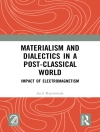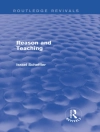Racial, ethnic, linguistic, and cultural diversity has become of global importance in places where many never would have imagined. Increasing diversity in the U.S., Europe, Africa, New Zealand, and Asia strongly suggests that a homogeneity-based focus is rapidly becoming an historical artifact. Therefore, culturally responsive evaluation (CRE) should no longer be viewed as a luxury or an option in our work as evaluators. The continued amplification of racial, ethnic, linguistic, and cultural diversity and awareness among the populations of the U.S. and other western nations insists that social science researchers and evaluators inextricably engage culturally responsive approaches in their work. It is unacceptable for most mainstream university evaluation programs, philanthropic agencies, training institutes sponsored by federal agencies, professional associations, and other entities to promote professional evaluation practices that do not attend to CRE. Our global demographics are a reality that can be appropriately described and studied within the context of complexity theory and theory of change (e.g., Stewart, 1991; Battram, 1999). And this perspective requires a distinct shift from "simple" linear cause-effect models and reductionist thinking to include more holistic and culturally responsive approaches.The development of policy that is meaningfully responsive to the needs of traditionally disenfranchised stakeholders and that also optimizes the use of limited resources (human, natural, and financial) is an extremely complex process. Fortunately, we are presently witnessing developments in methods, instruments, and statistical techniques that are mixed methods in their paradigm/designs and likely to be more effective in informing policymaking and decision-making. Culturally responsive evaluation is one such phenomenon that positions itself to be relevant in the context of dynamic international and national settings where policy and program decisions take place. One example of a response to address this dynamic and need is the newly established Center for Culturally Responsive Evaluation and Assessment (CREA) in the College of Education at the University of Illinois at Urbana-Champaign.CREA is an outgrowth of the collective work and commitments of a global community of scholars and practitioners who have contributed chapters to this edited volume. It is an international and interdisciplinary evaluation center that is grounded in the need for designing and conducting evaluations and assessments that embody cognitive, cultural, and interdisciplinary diversity so as to be actively responsive to culturally diverse communities and their aspirations. The Center’s purpose is to address questions, issues, theories, and practices related to CRE and culturally responsive educational assessment. Therefore, CREA can serve as a vehicle for our continuing discourse on culture and cultural context in evaluation and also as a point of dissemination for not only the work that is included in this edited volume, but for the subsequent work it will encourage.
Henry Frierson & Stafford Hood
Continuing the Journey to Reposition Culture and Cultural Context in Evaluation Theory and Practice [EPUB ebook]
Continuing the Journey to Reposition Culture and Cultural Context in Evaluation Theory and Practice [EPUB ebook]
Mua cuốn sách điện tử này và nhận thêm 1 cuốn MIỄN PHÍ!
định dạng EPUB ● Trang 405 ● ISBN 9781623969370 ● Biên tập viên Henry Frierson & Stafford Hood ● Nhà xuất bản Information Age Publishing ● Được phát hành 2014 ● Có thể tải xuống 3 lần ● Tiền tệ EUR ● TÔI 5966381 ● Sao chép bảo vệ Adobe DRM
Yêu cầu trình đọc ebook có khả năng DRM












